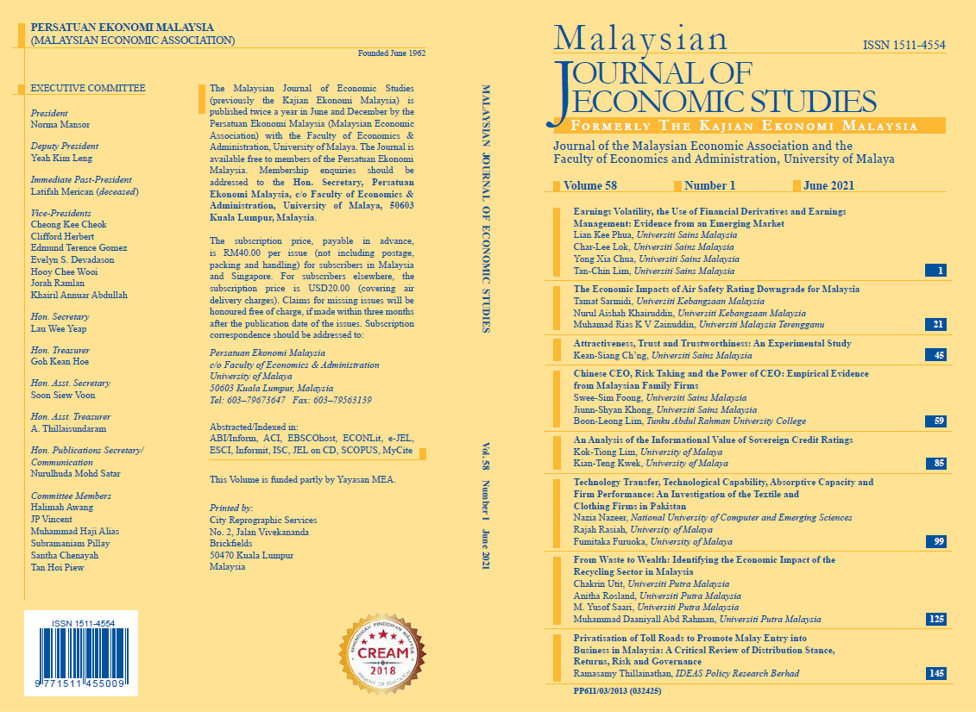From Waste to Wealth: Identifying the Economic Impact of the Recycling Sector in Malaysia
DOI:
https://doi.org/10.22452/MJES.vol58no1.7Keywords:
Economic impact, embodied recycled materials, input-output analysis, recycling sectorAbstract
This paper assesses the economic impact of the recycling sector in Malaysia to gauge its potential for strengthening green-based economic growth in alignment with the Sustainable Development Goals (SDGs). This study employs a comparative impact assessment to analyse the input-output multiplier and linkages using the national input-output tables for 2005, 2010 and 2015. Our results indicate that the recycling sector has high potential to transform waste to wealth from which its value-added multiplier is sufficiently high and is also reinforced with high spillover effects. The recycling sector is identified as a strategic sector, where approximately 70% of its products are embodied in intermediate demand. This sector conforms to circular economy practices as other sectors in the economy are utilising recyclables for remanufacturing purposes. The value-added footprint level of the recycling sector also shows an increasing trend that implies its growing importance in supporting the growth of other production sectors in the economy. At the sectoral level, most of the recyclables are utilised by the Wholesale and Retail Trade sector. Hence, our work emphasises the importance of prioritising the recycling sector in development plans, as well as improving and strengthening the backward linkages between the recycling sector with other production sectors.

